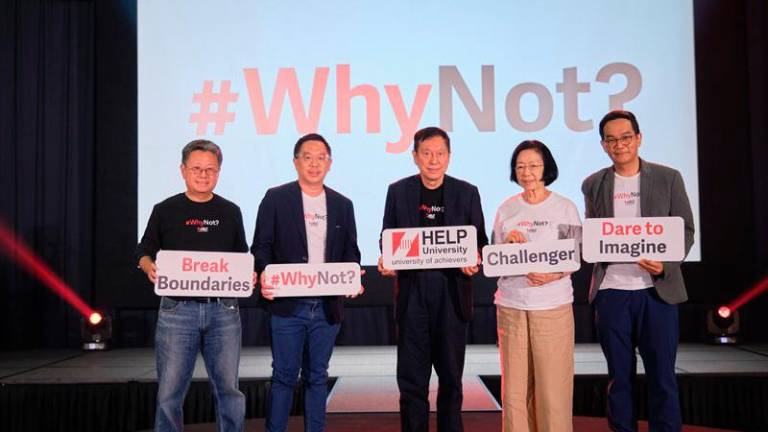MERDEKA folks will remember the tale of Jack and Jill who went up the hill to fetch a pail of water. Jack fell down and Jill came tumbling after. Today’s Jack and Jill stand for climate and religion, with both taking humanity on a roll towards a hotter world.
If not for last-hour thunderstorms, millions of people including residents in idyllic Cape Town would have had to claw at tree barks in desperate search for water. Strangely, H20 is actually present everywhere. Likewise, the water of salvation flows in all places. Indonesia’s largest Islamic organisation, Nahdlatul Ulama (NU), has taken a step towards greater fellowship by issuing a call to scrap the term “kafir” as a label for non-Muslims.
But how many “likes” did NU’s call garner in Malaysia? While the word “kafir” is Arabic, the meaning is the same as the Koine-Greek term “apistos” (infidel) used by Christians to depict non-Christians, and the word “gentile” (Hebrew: goy) used by Jews to call non-Jews. The plain-speaking label “unbeliever” is more widely used today. “Kafir” in the Concise Dictionary of Islam means “one who refuses to see the truth; an infidel”. An unbeliever (“apistos”) is defined in the Expository Dictionary of New Testament Words as one who is “faithless, unfaithful, distrustful, untrustworthy”.
Leaving aside the argument whether these labels are derogatory, their intentional use is to separate “Us” from the “Not Us”, to draw a line where you stand on that side and we stand on this side. These labels are taken out of their historical geopolitical context, and by dividing the people they frustrate efforts to avert global climate change. They have no place in Malaysia where more than 99% of the citizenry have declared their faith in some religion.
The practice of sticking a “goy”, “apistos” or “kafir” label on someone outside your religion is a West Asian security protocol that reflects the region’s turbulence since early civilisational days. West Asia was once a region with the most number of rival civilisations, with a war fought every century. The term “clash of civilisations” aptly describes West Asia, and this clash is also a conflict of religions because religion has been the anchor for every West Asian civilisation from the time before King Gilgamesh of Sumeria (2500 BC).
The three religions of West Asia that we know best are Judaism, Christianity, and Islam. All three had to rally their followers in a do-or-die battle for survival against tough enemies who were, in fact, the establishment ruling the land. The label “unbeliever” designated the enemy against whom they were struggling – resistant Canaanites whose land the Jews were eyeing; high-class Jews and Roman imperialists who picked on the nascent Christian minority; elitist Meccan Arabs who opposed the Prophet and his reforms.
But when you stick the label “unbeliever” on Hindus, Buddhists, Jains, Sikhs, Confucianists and Taoists, you are confusing old history with new reality. All these communities have their own belief systems that are as relevant to them as your faith is to your community. You get your antioxidants from olive oil; they get their antioxidants from coconut oil.
Water is the source and sustainer of life forms on earth. Truly it’s a saviour at all times. Then, what about life forms on planet Mars? How would they survive? Scientists have found conclusive evidence of water on Mars, the same H20 as on planet Earth. Even on a dead planet you can find life-giving water. So can you deny that the same life-giving truth in your religion can also be found in Hinduism, Buddhism, Jainism, Sikhism, Confucianism and Taoism? If you don’t believe that, in what sense are you a believer?
In a way, the four indigenous religions of India and the two indigenous religions of China are more truth-compliant as the label “unbeliever” is never used by them against each other. The same Indian civilisation is mother to its four religions; in China, Taoism and Confucianism are two faces of the same civilisational coin. With Buddhism forming a connecting bridge, there has never been a clash of civilisations between India and China.
The writer champions interfaith harmony. Comments: letters@thesundaily.com















